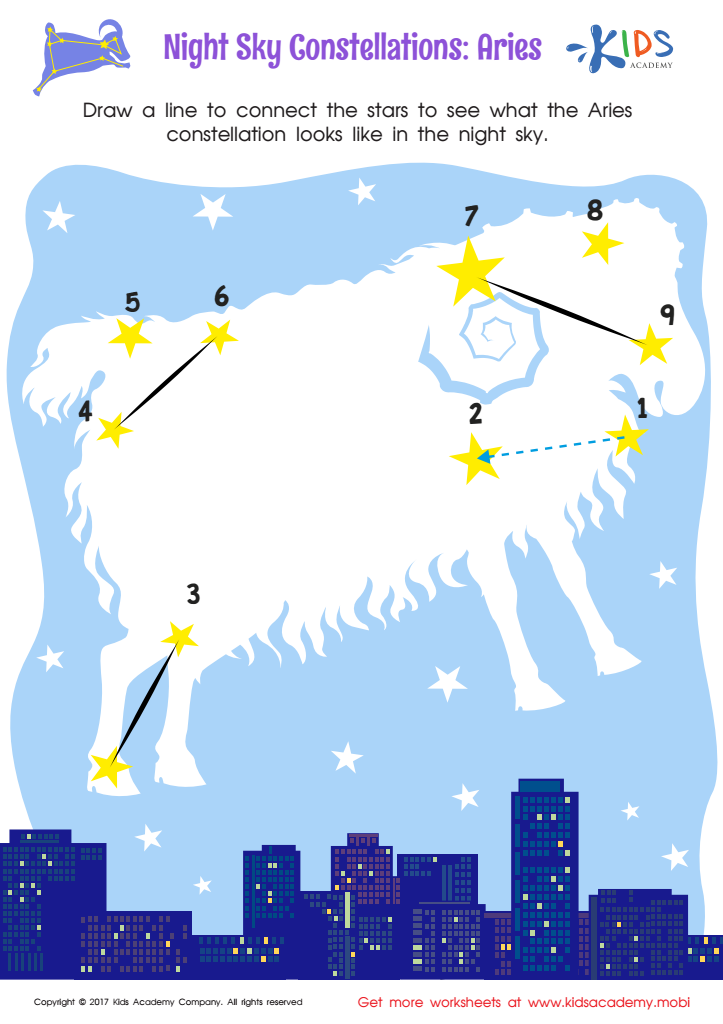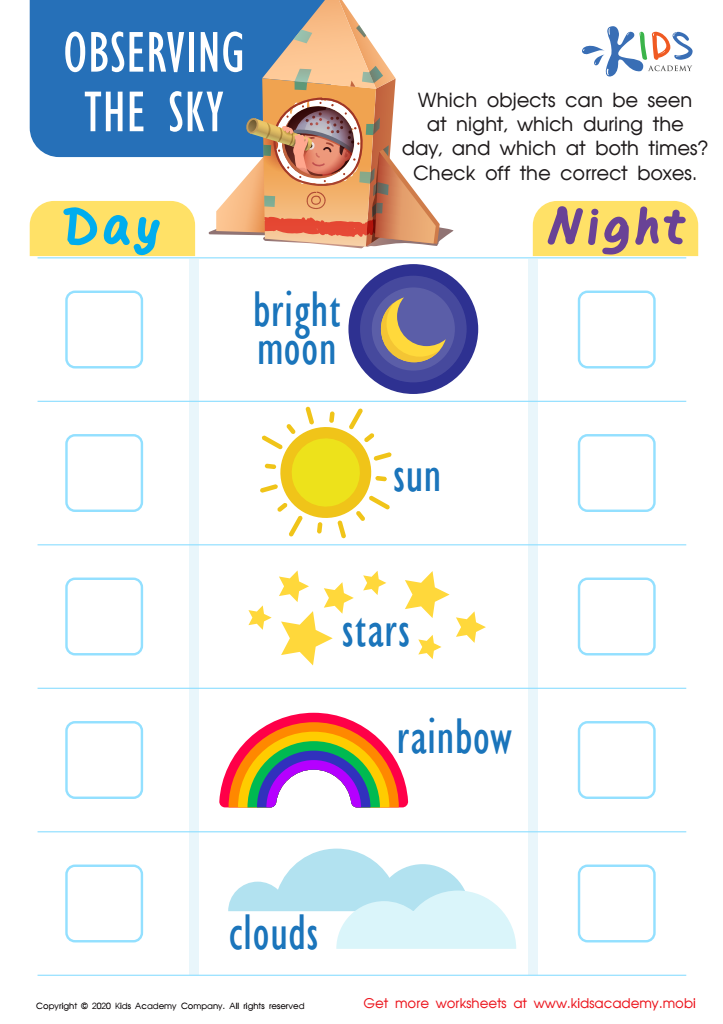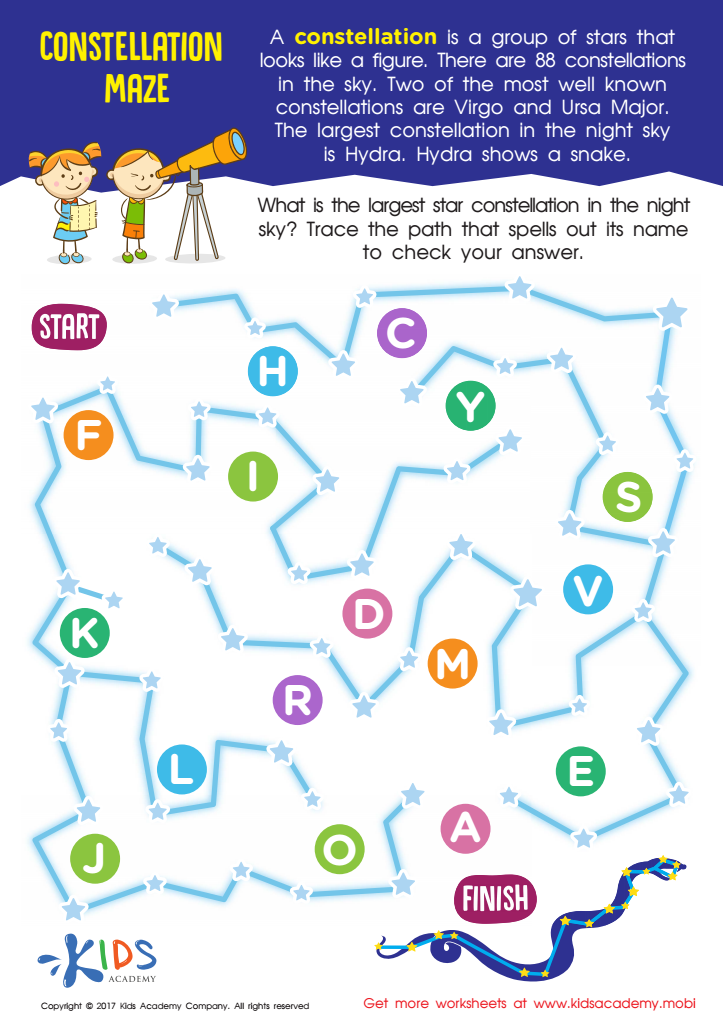Understanding constellations Space Worksheets for Ages 3-7
3 filtered results
-
From - To
Explore the wonders of the night sky with our "Understanding Constellations" Space Worksheets, designed specifically for ages 3-7. These engaging worksheets introduce young learners to the enchanting world of constellations, helping them develop critical scientific skills while having fun. Each worksheet includes visually appealing activities like connection dots, simple identification tasks, and creative drawing prompts that ignite curiosity about stars and space. Encourage imagination and early critical thinking as children learn to recognize different star patterns and their stories. Perfect for classroom settings or at-home learning, these resources lay the groundwork for a lifelong love of astronomy! Start your adventure today!


Night Sky Constellations: Aries Worksheet


Observing the Sky Worksheet


Constellations Worksheet
Understanding constellations is essential for children aged 3-7 as it lays the groundwork for their appreciation of science and the universe. At this age, children are naturally curious, eager to explore and learn about the world around them. By introducing them to constellations, parents and teachers can inspire a sense of wonder about space, encouraging questions about the stars, planets, and beyond.
Learning about constellations also fosters imagination and creativity, as children often depict these star arrangements in original, playful ways. This imaginative play can enhance cognitive abilities and critical thinking skills when they describe and interpret what they see. Furthermore, constellations can lead to discussions about cultures and histories, as many cultures have their own stories tied to certain stars, promoting inclusivity and diversity in learning.
Moreover, exploring constellations can improve a child's understanding of patterns and maps, essential skills in mathematics and geography. Activities like creating drawing projects or going on stargazing field trips also support social interactions and teamwork, making learning fun and engaging. In essence, understanding constellations not only nurtures curiosity but also contributes to children's holistic development, sparking an early interest in science and math that can benefit them in the future.
 Assign to My Students
Assign to My Students




%20(1).jpg)















